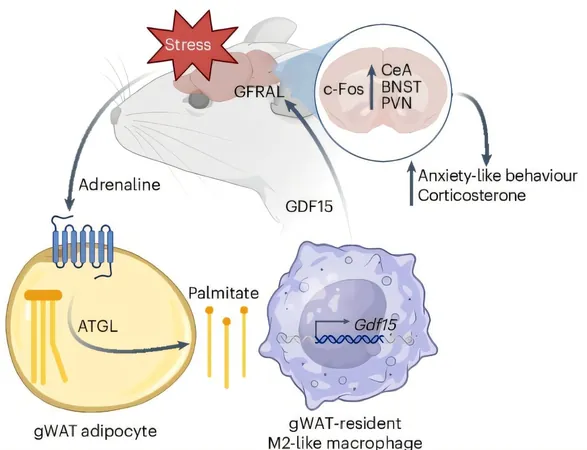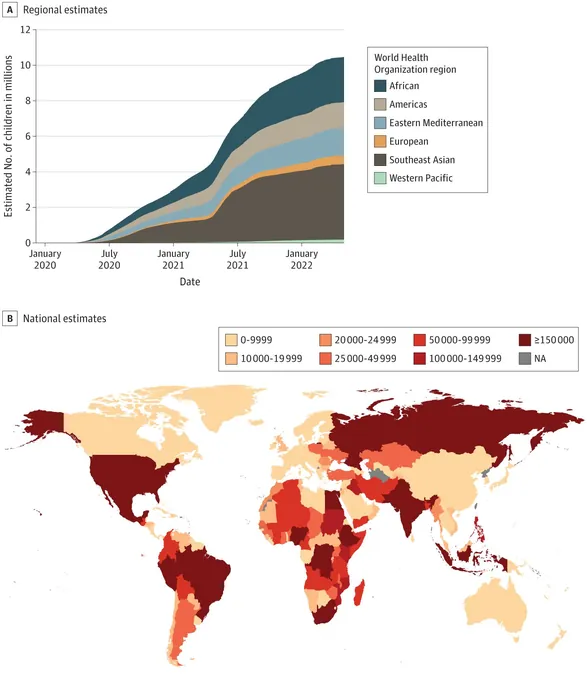
New Research Reveals Surprising Link Between Body Fat and Anxiety
2025-04-15
Author: Jia
A Groundbreaking Discovery at McMaster University
Researchers at McMaster University have unveiled a groundbreaking connection between body fat, known as adipose tissue, and anxiety, presenting fascinating insights into the complex relationship between our metabolism and mental health.
Addressing Growing Concerns
Published in the prestigious journal Nature Metabolism on April 15, 2025, this research comes at a crucial time as rates of anxiety and obesity continue to surge. Understanding the biological mechanisms behind this connection is more vital than ever.
A New Frontier in Treatment
Gregory Steinberg, the senior author of the study and a prominent professor in McMaster's Department of Medicine, remarked, "This link between adipose tissue and anxiety opens up exciting new avenues for research and potential treatments." He emphasized the intricate bond between metabolism and mental health, expressing hope that these findings could lead to improved outcomes for those grappling with anxiety.
The Science Behind the Connection
The research team discovered that when faced with psychological stress—triggering our fight or flight response—the body initiates a process known as lipolysis in fat cells. This process releases fat molecules that stimulate the production of a hormone called GDF15 from immune cells in fat tissue. GDF15 then signals the brain, potentially leading to increased anxiety levels.
Innovative Research Methodology
Through a series of carefully constructed experiments with mice, researchers conducted behavioral tests to observe anxiety-like behavior and performed molecular analyses to pinpoint activated pathways. The results established a clear link between metabolic changes in adipose tissue and heightened anxiety, providing fresh insights into how these two areas interact.
Towards Targeted Treatments
Logan Townsend, the lead author and a postdoctoral fellow at McMaster, stated, "These findings open thrilling possibilities for developing new anxiety treatments by focusing on metabolic pathways." He highlighted the importance of understanding how stress-induced changes in fat cells affect anxiety, suggesting that this knowledge could pave the way for innovative therapies targeting metabolic processes. With several companies already exploring GDF15 blockers for cancer treatment, there may also be potential applications for anxiety relief.





 Brasil (PT)
Brasil (PT)
 Canada (EN)
Canada (EN)
 Chile (ES)
Chile (ES)
 Česko (CS)
Česko (CS)
 대한민국 (KO)
대한민국 (KO)
 España (ES)
España (ES)
 France (FR)
France (FR)
 Hong Kong (EN)
Hong Kong (EN)
 Italia (IT)
Italia (IT)
 日本 (JA)
日本 (JA)
 Magyarország (HU)
Magyarország (HU)
 Norge (NO)
Norge (NO)
 Polska (PL)
Polska (PL)
 Schweiz (DE)
Schweiz (DE)
 Singapore (EN)
Singapore (EN)
 Sverige (SV)
Sverige (SV)
 Suomi (FI)
Suomi (FI)
 Türkiye (TR)
Türkiye (TR)
 الإمارات العربية المتحدة (AR)
الإمارات العربية المتحدة (AR)